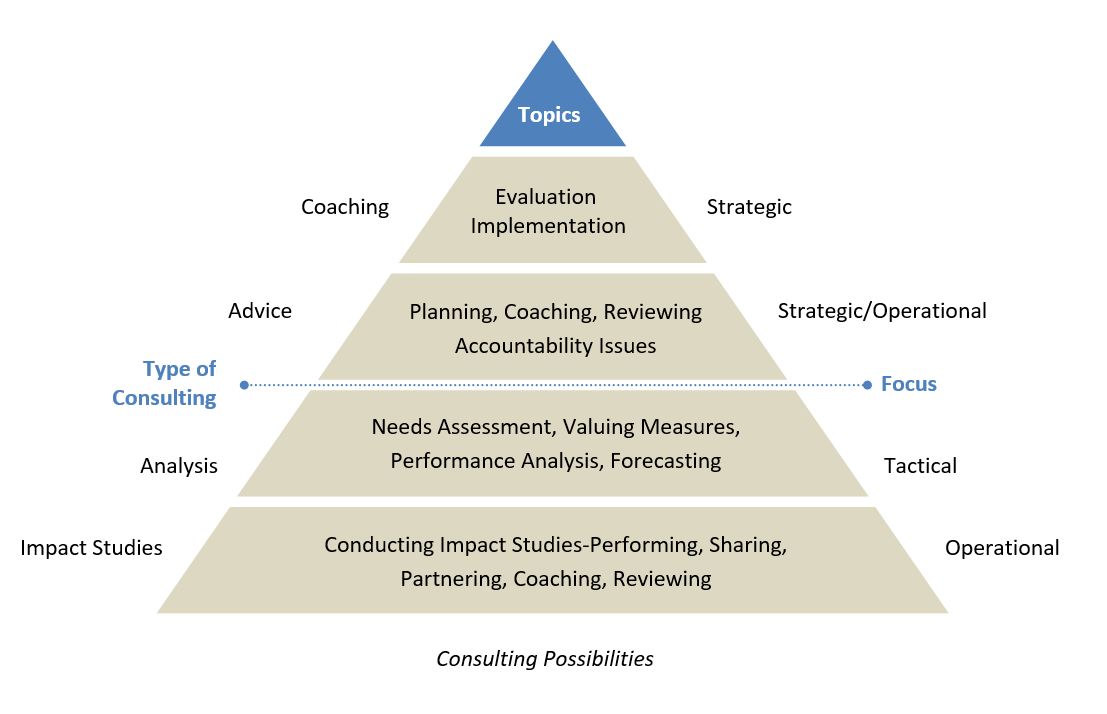Coaching FAQ

Executive coaching requires a willingness to get out of your comfort zone regarding change. It also requires an investment in time.
Together we’ll start with an initial assessment to understand why you are seeking coaching and agree upon desired outcomes and how we will measure success. We’ll build a plan of action to drive the desired change and discuss your progress on an ongoing basis. I will challenge you, ask you questions, and support you. I will work to make you become more intentional in all your leadership efforts. I will hold you accountable by asking you what, how and when actions that will help you achieve your goals.
While each coaching relationship is unique, the following are common areas of conversation:
- How to build collaboration in your office.
- How to build a better plan for working with both public and private sector leaders.
- How to develop and communicate a vision to strengthen organization success.
- How to best develop and retain organizational talent.
- How to establish and maintain accountability for you and your staff.
Metrics to define success will be agreed upon upfront. Measuring success can come in the form of follow-up surveys, your own personal assessment of effectiveness, or business metrics, just to name a few.
The length of a coaching engagement varies depending on the agreed upon scope of work. However, the initial engagement is typically three to six months. There is an option, after the initial engagement, for an ongoing retainer relationship, if desired.
Frequency of meetings is dependent on your availability and ability to make progress on agreed upon actions between meetings. However, initially weekly or every other week is common.
The calls/visits are 1 hour long. During the call, a set of actions will be determined to be completed before the next call. Prior to engaging on further actions, there is a review of the success of achieving the actions set forth in the previous call. Additionally, there could be an occasional article to read or questions to answer for next call/visit.
No. While I work with senior executives, other leaders in the organization are perfect candidates for coaching activities. The key item is the leader to be coached wants to engage in continuous personal and professional development.
Absolutely―your confidentiality is taken very seriously. This includes ensuring an executive’s confidentiality within their own company as well as externally.
Agreements concerning roles and involvement will be clarified before the coaching engagement begins. As a general rule, the coaching recipient is responsible for communicating updates with regard to their development focuses, actions, or progress with the various stakeholders to ensure confidentiality is maintained.
ROI Evaluation FAQ
A ROI evaluation study begins with planning how to collect and analyze data and report the results. This is followed by designing and implementing appropriate data collection instruments. Data are collected, tabulated, and analyzed. Analysis includes isolating the effects of the project on the impact data, converting data to money, and calculating the ROI. The ROI calculation compares the net project benefits to the project costs. Intangible measures, those measures that cannot be easily and credibly converted to money but are connected to the project, are identified and captured.
The evaluation ends with compiling a comprehensive report that provides the following data categories:
- The reaction to the project.
- The learning that was necessary to make the project a success.
- How the participants (users) have made the project a success with their actions.
- The impact of the project, connecting the project to important tangible and intangible measures in the organization.
- The financial ROI.
The deliverable of the study includes conclusions and recommendations. Additionally, barriers and enablers are identified to ensure the project is as successful as possible.
In the economic development/chamber of commerce field, programs such as: Marketing, Events, and Business Retention & Expansion programming are naturals for ROI study.
As an example, I used the ROI methodology to evaluate a primary marketing awareness event for an organization I led. The event was a Real Estate Awareness Tour that hosted real estate broker/developers. After one of the events, I was asked by a board member, “have you ever had a real estate deal happen because of these awareness tours?” My answer was, “well, I know the real estate community enjoy themselves at the event.” That was not the answer that board member want. So, the next year we preformed a ROI study on this event. By the end of the year, I was able to go back to the board member and state that yes, these events that 3 real estate deals occurred that were attributed to the tours and that overall the tours produced an ROI of 2,525% and the benefit/cost analysis showed that for every dollar of cost, the community earned $26 of benefit.
All evaluation studies are custom developed and delivered. However, a typical study takes 4-8 months.
What is the time commitment for economic development/chamber of commerce staff to conduct the ROI study?
Dr. Pete and ROI Institute can help you with your evaluation study in one of the following three ways:
- Dr. Pete and ROI Institute can conduct an independent evaluation of your project.
- Dr. Pete and ROI Institute and your team can work together to collaborate on the study. This collaboration may include your team completing a majority of the work with Dr. Pete’s coaching, advice, and assistance.
- Dr. Pete and ROI Institute can teach you how to conduct a study through the ROI Certification® process. This comprehensive process teaches you how to conduct studies and provides virtual support as you progress. Upon completion of your ROI study, you will earn the designation of Certified ROI Professional® (CRP). More than 15,000 managers and specialists have participated in this credentialing process.
